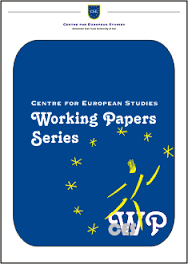EU Policies Regarding the Development of Trust-like Devices - Recent Challenges, Achievements, Prospects and Terminological Insights
EU Policies Regarding the Development of Trust-like Devices - Recent Challenges, Achievements, Prospects and Terminological Insights
Author(s): Irina GvelesianiSubject(s): Economy, Economic policy, Socio-Economic Research
Published by: Editura Universităţii »Alexandru Ioan Cuza« din Iaşi
Keywords: globalization; trust; trust-like device; K30;
Summary/Abstract: “Trust” is a versatile instrument which is suitable for a great variety of purposes. Many scholars believe, that the original form of this institution appeared in common law, while in the 20th century the process of globalization stipulated the “internationalization” of the trust mechanism. The starting point of this process was the conclusion of the Hague Convention on the Law Applicable to Trusts and on their Recognition. Initially, the civil law jurisdictions were unable to adopt “trust” structure in which common-law power and equity power belonged to separate entities. Despite this fact, in the recent years, trust-like devices have been introduced in certain economic-juridical systems of Europe. Their rapid implementation raised the question of the establishment of innovative policies. This paper will discuss the latest achievements and existing challenges based on the example of the German juridical-economic system. The aim is to make useful proposals for the successful planning of the European entrusting processes.
Journal: CES Working Papers
- Issue Year: 8/2016
- Issue No: 1
- Page Range: 93-102
- Page Count: 10
- Language: English

